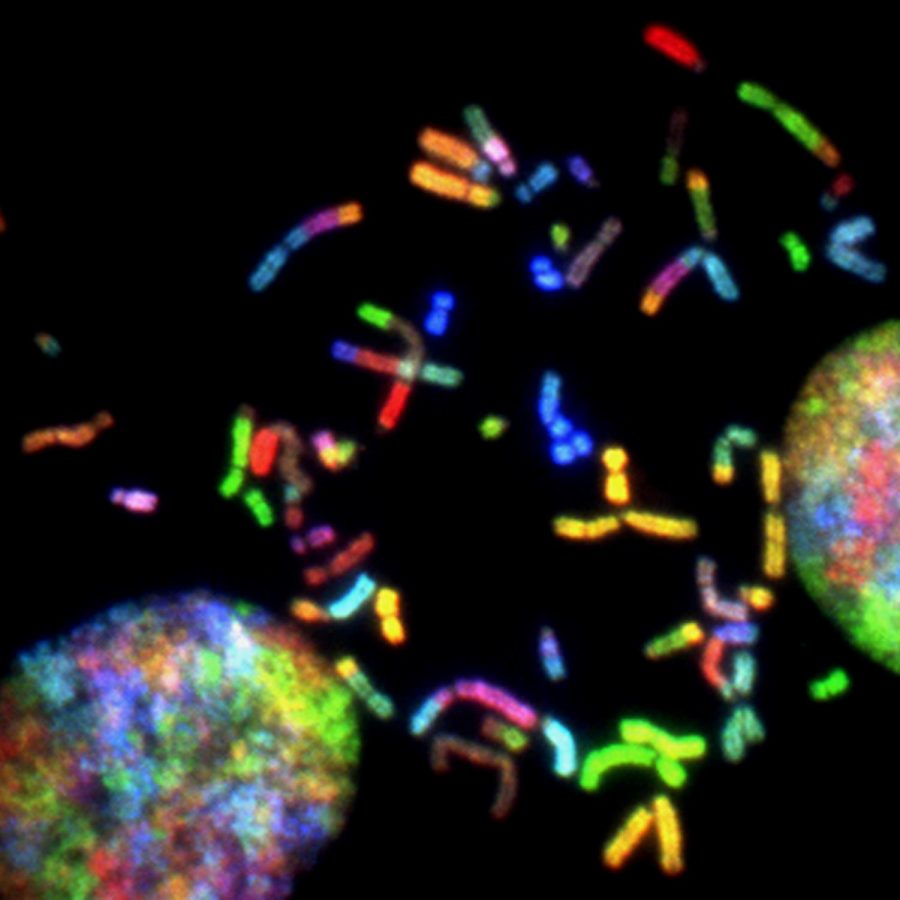New to LZHS: Genetics and Society Dual Credit course
Photo by and used with permission of National Cancer Institute on Unsplash
The emphasis of the new Genetics and Society class will be on applying the content to lab skills.
Genetics and Society H/CP Dual Credit Blended is a new science elective being offered in the 2021-2022 school year that can give you college credit without the stress of an AP test. The long name signifies the flexibility of the class, with Honors, CP, and Blended options. The only prerequisite is freshman Biology, and it’s part of the LZHS-CLC partnership that is bringing multiple dual credit courses to the high school in the fall.
There’s no lack of majors or careers that involve the genetic sciences covered in this one semester class. Students who are interested in the Health Sciences might find this class useful, but even if students know they do not want to enter a science field, “it’s nice to get credit and be able to take different classes when you go to your four year university,” said science teacher Laura Cohen, who will be teaching the class next year.
“The medical field is a big career for this,” McKenna Serowka, science department chair, said. “So a physician, a nurse, an anesthesiologist, any of those specialty fields, it’s helpful for them to have an understanding of the genetics in that field. [M]ore specific would be a career in molecular biology, a career in microbiology, a career in genetic counseling, forensic scientist, or epidemiologist.”
In such a modern, technology-based field, it’s possible that students who take this class will graduate college to find and enter brand new careers that have opened up in the field.
People that are interested in this topic will probably have careers that “we don’t really know about yet,” Cohen said. “We’ve had some genetic counselors come to school and talk to our classes, last year before the pandemic started, and it’s brand new, they’re in brand new programs–it’s a very quickly growing field because the technology is growing so fast.”
Figuring out through experimentation whether you want to go into the genetics field or not can be useful (and cheaper) in high school rather than in college. Besides, according to Serowka, general knowledge of this futuristic field can be advantageous regardless of career.
“I think having a general understanding of [genetics and the role of genetics in our lives] is just beneficial as an informed citizen moving forward,” Serowka said. “Additionally, students have the opportunity to earn dual credit so anyone who’s planning to attend a two or four year university, this potentially could save them from paying for a class going forward, which I think that is a great impact on somebody’s future.”
Genetics and Society will cover four units of study: Molecular Genetics, Genetics and Human Health, Genetics and Biotechnology, and Genetics and Population. It will be “extremely lab and skill based,” said Cohen, and parts of the class take familiar biology topics and go more in depth with them.
The first unit, Molecular Genetics, takes some topics from freshman Biology, like “DNA and protein, cancer topics, [and] what happens when DNA mutates,” studied through DNA extraction, amplification, and comparison, according to Cohen.
Genetics and Human Health also has ties to Biology, bringing back the Punnett squares basics, but then going further into the complexities. The Biotechnology unit will involve “gel electrophoresis, micropipetting,” and even learning about immunity, “like coronavirus and how technology has helped us,” Cohen said. She also said that the final unit, Genetics and Populations, will look into how populations change and natural selection.
Cohen emphasizes that the class will “help you make connections between content and the real world. This is not going to be dry memorization. This is going to be practical and hands on.”

Hannah’s third year on staff is her first year as Spotlight Editor. She spends more time talking to her cats than practicing her flute as a band member....

